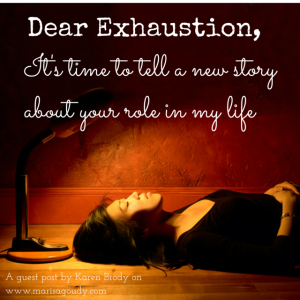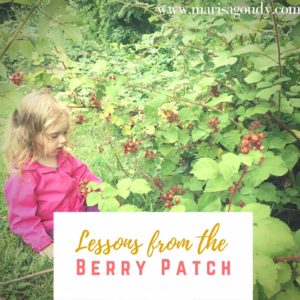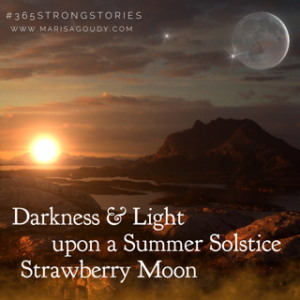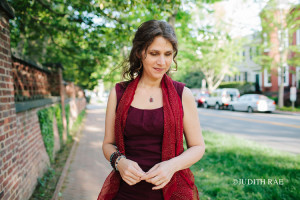
BLOG
Exhaustion: It's Time to Tell a New Story by Karen Brody
I'm thrilled to bring you a guest post from Karen Brody this week for several reasons:
- I am in love with her work and am eager for her upcoming Daring to Rest: Wild Woman Writer - a 9 month online emersion in meditation, yoga nidra, and writing
- I want to see what you can create when you shed the "I'm so bloody tired" narrative - and I want the same for myself.
 Let's face it, women today are tired.
Let's face it, women today are tired.
Done. Cooked. Fried.
I coach busy women leaders, and this is what they tell me all the time:
"I spent years getting educated and now I don't have any energy to work."
Or "I love my work, but my kids keep getting sick and so I show up to my job and can't even remember what I'm doing."
This story of exhaustion is real and we could say it's simply an effect of modern life and leave it at that. But I sense there's more meat to this story. I believe women can re-write the story of their exhaustion and it starts with telling a new story from a new place.
Shedding Your Tired Stories About Sleep & Rest
Do I want women to lie about being tired? Well, actually, I see it more like the need to shed.
If we're going to bring peace and tranquility back to our lives -- and to the world -- we've got to shed ourselves of what keep us so tired. And that starts with our mind.
Our minds are useful tools that give us many gifts, but there's this other dimension that goes beyond the mind and it's urgent women begin tapping into this place. Why? Because no matter how many gadgets you use to measure the number of hours you're sleeping or how well you think you know your exhaustion, identifying with this story is ultimately draining. It won't make you feel whole, ecstatic and ultimately fulfilled.
Counting the number of hours you're sleeping at night -- telling yourself the story that you're just not a good sleeper or just not the kind of person who can get in eight hours of sleep every night -- is thinking that is done through ego-mind, and this is exactly what separates us from oneness.
People think ego-mind will free them -- counting those hours of sleep -- but most people who are counting the number of hours they sleep are not living fulfilled lives.
I'm not shaming science -- the research that tells us we should be getting a certain number of hours of sleep is often based on solid facts -- but instead I'm urging women to be cautious how we use it. Sleep deprivation is only an ingredient in your soup. It's urgent that we reveal the full recipe.
We must we teach women to tell the full story of exhaustion... to shake off this one-sided karmic drain.
When You See Beyond Exhaustion, You See Gold
 It's time to stop reinforcing separation.
It's time to stop reinforcing separation.
It's no wonder women are so exhausted. When we tell only one side of the story throws us out of balance.
In scientific terms we've lost the balance between the parasympathetic and sympathetic branches of our nervous system. In human potential terms, we've stopped looking for our gold.
The story of exhaustion in women today keeps us stuck in a narrative that has taken us away from feeling wildly alive.
What if instead of being goal oriented -- looking for those perfect precious hours of sleep -- we searched for our gold? This is the story we must start writing. With technology extending our days and gadgets to tell us that we're not measuring up all here to stay, women need to take back the narrative on exhaustion and focus on our gold -- that place where were wildly ourselves and creative. This is the only way woman leaders of the 21st century are going to survive.
I remember a time when I was a young community organizer and all my mentors were exhausted bright women stuck in what I termed "the story of yuck." They were doing brilliant work, yet their stories were all the same: high output, but exhausted in mind, body, and spirit. Most were divorced, or not in healthy relationships. Nobody seemed to care or notice that deep down they were personally miserable.
Historically women's exhaustion story hasn't been much better. Exhausted women tended to go "mad" and take to our beds as a way to check out.
Today with so many creative forms of communication and the rise in popularity of mindfulness-based tools women have an opportunity to use our voices to change the story of exhaustion to one where we're fully checked in. We no longer have to hold on to the shame of exhaustion or identify ourselves as "exhausted all the time."
Create a New, Conscious Container for Your Life & Work
So how do we tell a different story? I suggest it starts with cultivating awareness, a deep consciousness. This is the "checking in" women so desperately need and it will only come if we rest more, specially using conscious tools like my favorite, yoga nidra meditation, a sleep-based meditation technique recently referred to as a "secret ... happy place" that's all your own.
Consciousness provides these gaps of nothingness and in the gap -- a deep pause -- this is when you can dis-identify with exhaustion. Not deny your exhaustion, but rather stay unattached to that story.
Think of it like a container. Your story of exhaustion is not the container, it's part of the stuff in the container. We tend to notice the stuff, right? We often say things like "I'm so tired all the time" or "I never sleep" because this is part of our stuff in the container. This is not the container. The container is your true story -- the gold -- and not everything moving through it. The story of your stuff is time-bound. You are not. You are timeless.
Yogis often talk about enlightenment as being when you are resting in the space of awareness. When you are the container.
I attended a training a few years ago at the Amrit Yoga Center and on my ride home on the airplane I found myself writing the words of my instructor again and again:
"You are the silence, not the sound."
This is the new story of exhaustion that women must start telling. A story born out of silence, not sound.
I believe that once women rest more, get silent, and start using tools that raise our consciousness -- that help us check in -- we will finally know without a doubt that we are powerful beyond our wildest imagination. Not Super Woman -- women aren't blind anymore, we know this isn't the gold -- but simply we'll begin to tell the version of us born out of awareness beyond our stuff. We'll tell whole truth in our own voices. A new narrative of women on exhaustion. It’s time.
Mother, writer & women’s empowerment leader Karen Brody is here to help you break the cycle of fatigue and reclaim your creative spark. She'll help you get some rest, chuck perfect & return to wholeness in your mission and purpose
Join Daring to Rest: Wild Woman Writer, a 9 month sleep-based meditation immersion for creative women starting March 15, 2017.
NOTE: If your exhausted, creative heart says "yes!" to Karen's offering, send me an email by March 12 (marisa@marisagoudy.com) and I will send you a special promo code for our community. You'll get an extra savings on top of the early bird discount!
Karen Brody is a dynamic mama changing the world, inspiring mothers, birth professionals and women entrepreneurs to “be the change” through their work, personal lives, and global commitment. She is the playwright of Birth - known as “The Vagina Monologues for childbirth” - and through Birth Karen founded BOLD, a global movement supporting birth visionaries to change the culture of birth. Today the BOLD movement includes The BOLD Method for Birth, a ground breaking “women’s empowerment meets childbirth education” approach, an advanced online yoga nidra meditation pregnancy and postpartum training and Bold Tranquility, a yoga nidra meditation company for women ready to wake up and be BOLD. Karen writes regularly for the Huffington post and has written dozens of articles and two health books.
Your stories can heal and serve - but only if you're ready to tell them
These roads are like grooves in my unconscious mind. They’re direct routes into who I really am, but they exist just a few degrees beyond the coordinates of my everyday reality. My daughters and I are driving through my hometown, but I’m not sure they know where they are. They’re focused on seeing friends and the promised ice cream cones and eventually getting to “Neana’s bench.”
I don’t live here anymore. That’s nothing new, of course. I left Cape Cod when I was eighteen just like every other kid with the means and the desire knows to do. But my family doesn’t live in this town anymore either. Strangers dwell in the house where I grew up. All that’s left of our name in this town is etched into my mom’s memorial bench in the church garden.
When we cross into Barnstable, I stop worrying about the most direct path between point A and point B. I trust that I still know seven ways to get everywhere (essential knowledge when you grow up in a tourist town). Soon, I realize I am not choosing streets, I am navigating time.
The lane to my elementary school. Lindsay DiPesa’s old house. The soccer fields that used to be a farm. The rec center where I was a camp counselor. My ex-boyfriend’s parents’ historic home. (Curiously, I ended up passing that place twice, but then, I always ended up back in that relationship even when I tried to leave!)
Every residential area, every sand strewn road has a memory rolled into the pavement. There are hundreds of stories I could tell my girls. Instead, we listen to the radio station that served as the soundtrack to my childhood, and I say nothing.
I’m hoarding my stories. I don’t trust my voice and I don’t trust the tears that threaten every time I remember what the parents of thirty years ago looked like when they stood with their kids at the bus stop on fall mornings. I don’t have the energy to weave these reflections into something that matters to my kids.
If I point out the library, I would feel obligated to say how sad I am that the tree where my mom and I played Piglet and Pooh was cut down to make more parking. If I describe how we used to rent videos from that village store they’ll want to watch something on the iPad.
The good news: you get to choose what stories you tell. Choose the stories that nourish you and your audience.
My girls are still young. For now, I generally get to craft the container of their reality and control what influences their understanding of the world. The goal is to protect them, of course, but I also get to protect myself - especially when I’m lost in tender pockets of grief that are much too much for them to bear.
Telling them more about where mama played and worked and biked and learned might have added to their carseat experience, but it would have cost me too much.
Well-balanced stories heal, protect, and serve.
I talk a lot about the Story Triangle and how you need to balance the needs and interests of your audience with your own needs and interests all while keeping an eye on what makes a story meaningful and compelling.
The Story Triangle is your guide as you tell a story. It enables you to appeal to your audience and honor your authentic voice and make the narrative work. It can also help you decide whether you can tell the story at all.
In an attempt to be a “good” mom who gives the gift of my own history to my children, I could have seized the moment and played tour guide. After all, every kid loves to know what things were like for mom and dad so they can squeal at our primitive ways and also feel connected over all the things that feel just the same. The commentary about seaside suburban life in the 80s and 90s would have filled the whole drive.
But that would have pushed me further off balance than any mama should have to bear, however.
The Story Triangle would have been pushed off kilter and, because these things have real life consequences, when you’re a family in tight quarters, someone would have ended up in tears.
The same is true when you’re a writer telling a story meant to build online community and attract ideal clients. Telling a story that’s too intimate and exposes raw wounds doesn’t serve you or your ideal clients. You get a massive TMI hangover and your readers aren’t so sure you’re the person to help them heal.
The good news: my family still gets to go to the Cape frequently to visit my Dad and my stepmom, though it’s to a different town I’ll probably never really get to know.
I trust that next chapter of my story will be a cheerful one, and one that I’m able to tell with a strong voice. There will be many more chances to take that trip down all the lanes of memory when the girls are older and when my wounds are more fully healed.
There's something to be said for seizing the moment and telling a story when it's timely and fresh. But remember: the story, the audience, and you, the storyteller, are best served when you wait for the right healing moment.
Writing Lessons From the Berry Patch
 As is often the way with everyday magic, you don’t notice it even when it’s right under your nose. Or encircling your back yard.
We lived in the house for a few years before we realized we lived in wild berry heaven. Our land bursts with joyful, succulent gifts every July, but we never noticed until we slowed down to a toddler’s pace and humbled ourselves to look at the world through the eyes of a child.
As is often the way with everyday magic, you don’t notice it even when it’s right under your nose. Or encircling your back yard.
We lived in the house for a few years before we realized we lived in wild berry heaven. Our land bursts with joyful, succulent gifts every July, but we never noticed until we slowed down to a toddler’s pace and humbled ourselves to look at the world through the eyes of a child.
And now our second girl is a passionate berry picker too. She’s insatiable, really, but at least we know where to find her when we say “but I thought YOU were watching her!”
This need to chaperone a two year-old in a fruitful paradise that also features thorns, concealed ditches, ticks, snakes, and poison ivy brings life to a halt a few times each day.
When at my best, I'm a merry companion willing to tear my dress to reach that perfect cluster of sweetness. Then there are the moments when I’m itching to start dinner or do some writing or simply go find some shoes so I can satisfy the incessant requests for “Berries! Berries! Mama, ber-RIES!” without injuring myself.
We’re not just picking fruit in the berry patch. We're taking lessons in patience, creativity, and picking the perfect moment.
There are also the in-between times when it’s possible to be the present parent and take an expedition into my own creativity at the same time.
As I said, it took us a while to notice we even had something so wonderful to harvest. But now that we know what to look for and we’ve come to expect this annual burst of Mother Earth’s abundance, we have a chance to learn the berries’ stages of growth. And impatient pickers that we may be, we try to act accordingly.
We know the tight fists, tough beginnings, sparkling jewels, and shining stars. These are the prickly buds, the unripe fruits, the ultimate treat, and the beauty left behind when a berry has been picked.
You can develop and enjoy the harvests of a writing practice in the same way.
Now, think about that story you’ve been longing to tell, the idea that you long to pull out of your head and put on paper. Consider the post that you want to see take root in the hearts of your audience…
At what stage are you? What can you do and what can you expect?
Is it a prickly bud? Perhaps all of the energy still needs to be aimed inward. The idea still needs more time. Though things look quiet from the outside, there’s tremendous growth and organization happening within. The reward seems terribly far off, but the promise is huge.
You need to give yourself time to write some meandering first drafts and to let yourself spend time on the self-focused first draft. Allow. Explore. Practice patience.
Is it unripe fruit? Maybe the structure of the piece of writing has emerged and now you’re tempted to push it out into the world, even if it’s not fully ready. This is when you must remember that the surest way to a disappointment - and a sore stomach - is found when you force a still-in-process post or product in the world. Perfection isn’t the goal, but putting out something that you know is unready is a way of devaluing yourself, your story, and your audience.
Walk away from the piece for hours or days and return with fresh eyes. Call on a friend or think about hiring a writing and storytelling coach who can help you see the big picture and fit all of the vital pieces together.
Is it the ideal moment to harvest? With love, time, and attention - or water, time, and sunshine - that piece of writing is ready to emerge in all of its fullness. Oh, it tastes so sweet on your tongue and it will bring such pleasure and nourishment to those you share it with!
Hit publish and savor the sweetness.
Is it time to share the beauty? There’s a bit of sadness when you release a treasured idea into a world where it might be gobbled up or left to rot on the shelf. Trust that you nurtured your idea with attention and patience. Trust its inherent nurturing nature and promote yourself.
Let other people know about your little shining star. And what if you put it out there and no one seems to notice? Try again. We live in an age of media saturation and a lack of response isn’t a judgement of your work’s worthiness.
I wish I could have you over for a chat down in our berry patch. Let's try the next best thing: set up a free 15 minute consultation to discuss how I can help you get from first shoots to a brilliant harvest.
This is why your audience missed your best story
 In a third floor loft with giant skylights opening on the fading summer dusk, two small children closed their eyes and fell asleep.
This isn’t much of a story until you understand that it’s Independence Day on Cape Cod at a condo just a few blocks from the beach.
In a third floor loft with giant skylights opening on the fading summer dusk, two small children closed their eyes and fell asleep.
This isn’t much of a story until you understand that it’s Independence Day on Cape Cod at a condo just a few blocks from the beach.
The mother watches the glow of fireworks on her children’s slack cheeks before she slips into her own oblivion. There are families saying “ooooh!” and “ahhhh!” all across the neighborhood, but the booms and cracks are just a lullaby to everyone at 19 Grove Lane.
This two year-old and this six year-old have come to their grandparents' house to be stuffed with marshmallows and wrapped in red, white, and blue dresses. This is the week when bedtime is a fairytale and adults hurry kids to get to the beach to catch the tide, not to get out the door to catch the bus. We are a family who believes in much of the patriotic excess of July 4.
But just not this year.
That word might not mean what you think it means - at least not to everyone
Vacation only has 8 letters, but it has a billion different meanings. For some, it’s hammocks and lemonade. For others, it’s mouse ears and princesses. For some it's hanging off a cliff or shooting down the rapids.
Then there are those who use the word to describe packing up the kids and throwing them into a house with a bunch of people who share the same gene pool but enjoy vastly different daily lives. We then add in some sand, salt, sugar, and pour adult beverages on top of it all and V-A-C-A-T-I-O-N spells emotional and physical marathon full of the joys of victory and the agony of defeat.
Vacation looks a lot more like survival (another 8 letter word) than relaxation.
In our case, July Fourth fell on the fifth day of our holiday and we were too worn out to care about sparklers or bonfires or the rockets red glare.
It’s Not Your Fault Your Audience Couldn’t Tune Into Your Story
If my kids and I could drift off during a huge fireworks display set off a few thousand feet from our beds, your ideal readers could definitely miss your blog post. Heck, your audience may well miss the fact that you’re blogging or podcasting or newslettering at all!
We live in a world of distraction. We live in a world of too much stimulation and too little human stamina to take it in - even when it’s wonderful, even when we said we were coming to town just to experience it, even when it’s part of being happy enough 21st century Americans who hold out some hope that Washington will look like Jed Bartlet’s city some day.
Yes, it might occasionally be you, the storyteller, who needs to shift the story to meet the needs and interests of the audience.
But it’s likely that you’re telling a splendid tale and pitching it at just the right people but they’re just too full or too tired or too preoccupied to absorb it.
So what do you do?
You can always try again next year when everyone is a little older and wiser, but the good news is that you probably don’t have to wait 365 days to try to put on the show again.
If you’ve got a story that you believe in, keep nudging it into the world. Not with pyrotechnics that wake the neighbors. Not in some annoying, spammy “read my post, dear Facebook group I never participate in unless it’s for self-promo!” sort of way.
Share it in a way that feels like an invitation to learn or enjoy something really meaningful.
Remember that a lack of response isn’t necessarily a judgement on the quality of your story. It’s timing. It’s overstimulation. It’s proof that we’re all just fragile humans trying to balance FOMO (that's "fear of missing out") and a wee bit of self-care.
Do you have a story that you're really proud of that your ideal readers missed out on? Leave a link in the comments below and I'll do my best to share it with my community.
Darkness and Light Upon a Summer Solstice Strawberry Moon
 It is more difficult than we imagine to hold space with the ultimate power of the sun and the full revelation of the moon. But here we are on June 20, 2016.
I’m so grateful to summer and thankful for its lush splendor. My eyes fill with tears that dry instantly on my cheeks in the face of a solstice sun at noon.
It is more difficult than we imagine to hold space with the ultimate power of the sun and the full revelation of the moon. But here we are on June 20, 2016.
I’m so grateful to summer and thankful for its lush splendor. My eyes fill with tears that dry instantly on my cheeks in the face of a solstice sun at noon.
Is this what abundance feels like?
This first day of summer decorated by a full moon feels like a full belly and a hunger to show gratitude. It feels like being anchored in the light-drenched earth and flying into the air all at once.
Tonight, I know I will not sleep. I’ll curse that bright-as-day orb even as I long to dance through the yard, bathed in her silver glow.
My toddler and I just spent a leisurely hour picking plants that promise to be drought resistant. (I am assuming I can translate that into “hearty enough to survive the care of a gardener who is better at describing the act of planting and tending than she is at finding the watering can.”)
It’s time to rescue the flowers from the car and find my widest brimmed hat and start preparing our rocky ground. But all I can do is squint from the shade of the porch, dizzied with the luster of this Summer Solstice Strawberry Moon June day.
Today, the sun reaches its zenith. Tonight, the moon shines with her fullest glory. To be alive is to know such brilliant illumination - almost more than you can stand. And it is to remember, somewhere in the overwhelming bliss, that there will be a darkness as bountiful as the light. That is how the heavens teach us about the cycles of living until we die. The loss, the dissolution, the shadows we must cast if we want to make a home in the light.
I still want to cry. With joy and thanks. With the ache for all the lost friends and departed family who will never walk east with me at sunrise, chasing our shadows into a new morning.
I still need to weep with all the potential I feel too full to hold. All the love to give, the stories to write, the healing spaces to create.
In this day of all possible illumination I see that I am afraid of becoming parched, sunburned, bleached. I am in love with the light, but I am wise enough to name and allow my fear.
What does it mean to be so visible, to have every laugh line and squinter’s crease and typo brought into such sharp relief?



